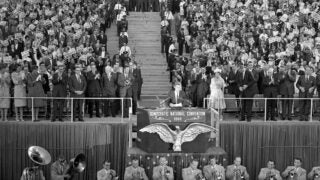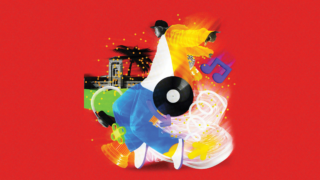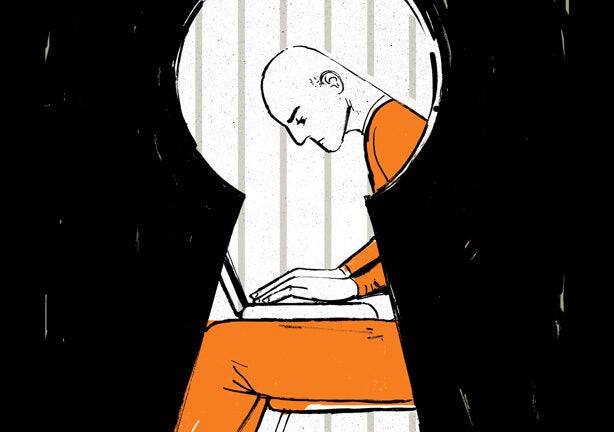
(Illustration/Edel Rodriguez)
Writing Unites USC Students and Ex-Prisoners Seeking a Better Life
Released prisoners share their stories while USC students write their own in an unusual partnership that has changed lives.
Mike taps and pokes at the keys of a small black laptop for about 10 minutes, maybe 12, before he lifts his fingers. His clicks go silent.
The words on his screen hold memories. They’re about a love who was lost long ago. He reads his story aloud to the men and women sitting around him, taking them back in time.
The storyteller spins his tale of Vicky, her old station wagon and dates at the drive-in. “Guess we always knew it wouldn’t last forever, but then again, now some nights I wonder how far off she may be,” he says, a slight crack in his voice. “A tune from the late ’60s comes to mind, and I’m transported to the happiness and the warmth — far more enduring than when the lightning first struck.”
Bespectacled and clad in denim, Mike won’t share his age. But with his head of gray hair, you can do the math.
Bespectacled and clad in denim, Mike won’t share his age. But with his head of gray hair, you can do the math. Mike got out of prison in 2018; he went away nearly 36 years ago at age 31. It was his last of four stints in prison. He has served a total of 45 years behind bars over the course of his life. Now, Mike spends his Thursday nights doing something different.
He writes.
A Different Kind of USC Writing Program
Mike has company on these evenings: USC students and instructors and his fellow residents at Francisco Homes. Francisco Homes is a nonprofit that offers housing and support to help formerly incarcerated men transitioning back into society.
Stephanie Bower and John Murray, both associate professors of writing at the USC Dornsife College of Letters, Arts and Sciences, have worked closely with the Francisco Homes transition program for more than a decade They launched a writing workshop for men there in 2016 in collaboration with Emily Artiano and Ben Pack ’06, MPW ’12, both USC Dornsife assistant professors. The effort grew, and now it includes USC students.
As part of a class, these students and their instructors travel to one of the transition homes, a stately Craftsman less than a mile from the University Park Campus, once a week. The students connect to people who have stories to tell, while the men get to try their hand at creative writing. The USC course is a version of Writing 150, “Writing and Critical Reasoning: Thematic Approaches.”
All USC first-year students must take some form of the course, regardless of their major. Some of the Writing 150 class offerings focus on economics and international relations, while others tackle aesthetics. Artiano and Pack put a different spin on their Writing 150 class: community engagement.
For this iteration of the course, students pick among three local organizations that address either education inequity, homelessness or restorative justice to dispel assumptions and think critically when writing about societal issues.
Working with Francisco Homes gives students insight into the criminal justice system. Its seven homes across Los Angeles provide housing and support for about 80 men who have left prison behind. Most residents are former lifers. During the class, men don’t delve into the specifics when talking about their crimes, but life sentences are invoked for serious offenses — so some of the men carry burdens of regret from their past.
Until recently, none of the men would have expected to be released — but due to an effort to reduce the prison population, California has allowed the release on parole of hundreds of prisoners who were serving long sentences. After their release, many of these men stay in transitional housing like Francisco Homes, where they may live for six months or longer.
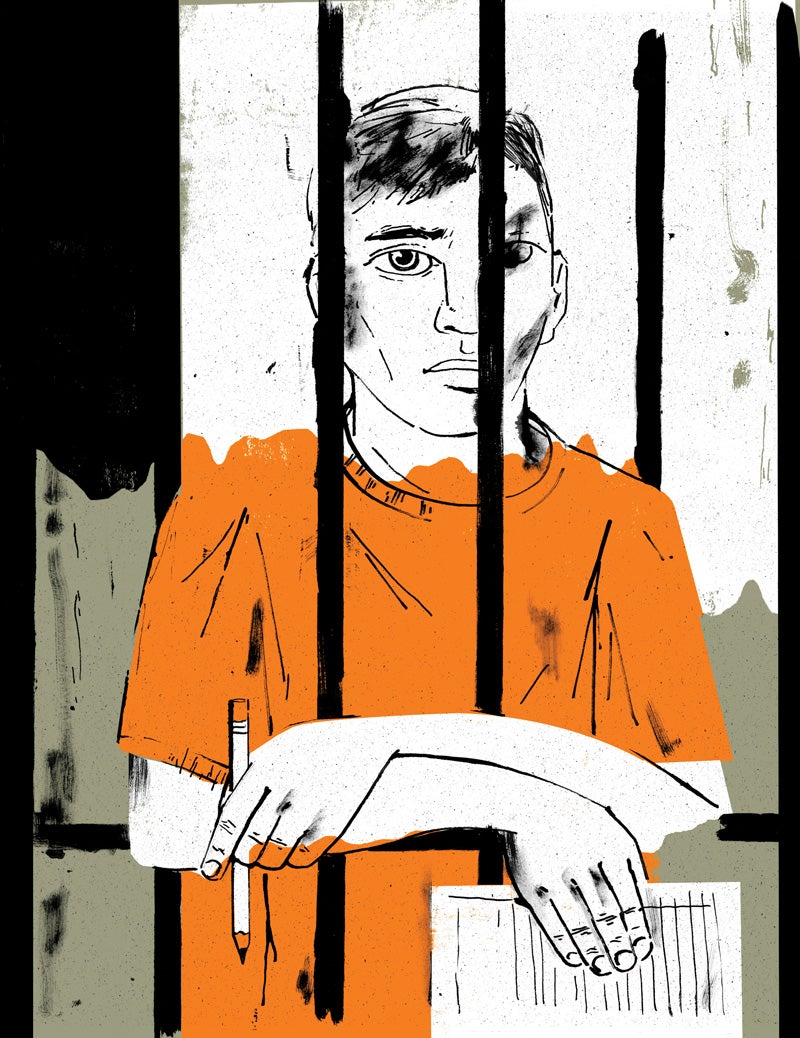
Finding Their Voice
After Mike shares his story about Vicky, instructors Artiano and Pack chime in with some observations. (Francisco Homes asked USC Trojan Family Magazine to only use residents’ first names protect the men as they attempt to rebuild their lives.)
“I love the way that you said that,” says Artiano, who holds a doctorate in early American literature. “That’s such a nice way of saying sometimes our memories can be stronger and more powerful than our feelings in [the actual] moment.”
Mike plans to keep working on the piece and submit it to the Francisco Homes newsletter, which the class helps put together. It features essays about reintegrating into society, along with creative writing. For many of the men, the workshop has ignited creativity that had been dormant for a long time.
For many of the men, the workshop has ignited creativity that had been dormant for a long time.
“I look forward to it every day,” Ed, 76, says of writing. Ed had been in prison for 37 years before getting out about two years ago and moving to Francisco Homes. He became the house manager, then moved out — but he still returns to the workshop. He admits that when the classes first started, he avoided them. He didn’t want to do it, he says. He felt that he lacked the skills. “It got so unbearable, I hid,” he says, with a laugh.
At first, he went to his room and then to his car down the street. “One day, they trapped me,” he says. “[My writing] wasn’t that good, but they kept talking about it and kept talking about it.” And that felt good, he says.
Writing in a group has offered some side benefits, too: Ed used to get stage fright talking in front of others, and now he doesn’t. For many, it’s also a chance to socialize and learn new skills, like how to use apps to share written work. Many of the residents went to prison in the 1970s and 1980s, before smartphones and laptops were ubiquitous.
The class has made an impact on the USC students, too, challenging their assumptions about people who have served time in prison. “I never had this interaction with this group of people before,” says 19-year-old Oussa Bun, who took the class and wrote a report on voting rights for citizens with felony convictions. “All I knew was what people told me and from movies and TV shows. “I didn’t feel like I was sitting with people who had been to prison. I felt like I was sitting with writers, painters.”
Bun changed his major because of his experience with the men of Francisco Homes, who taught him the preciousness of time. “Seeing them do what they love — pursuing art — made me rethink what my passion is and what I want to do,” he says. He switched his studies from civil engineering to photography.
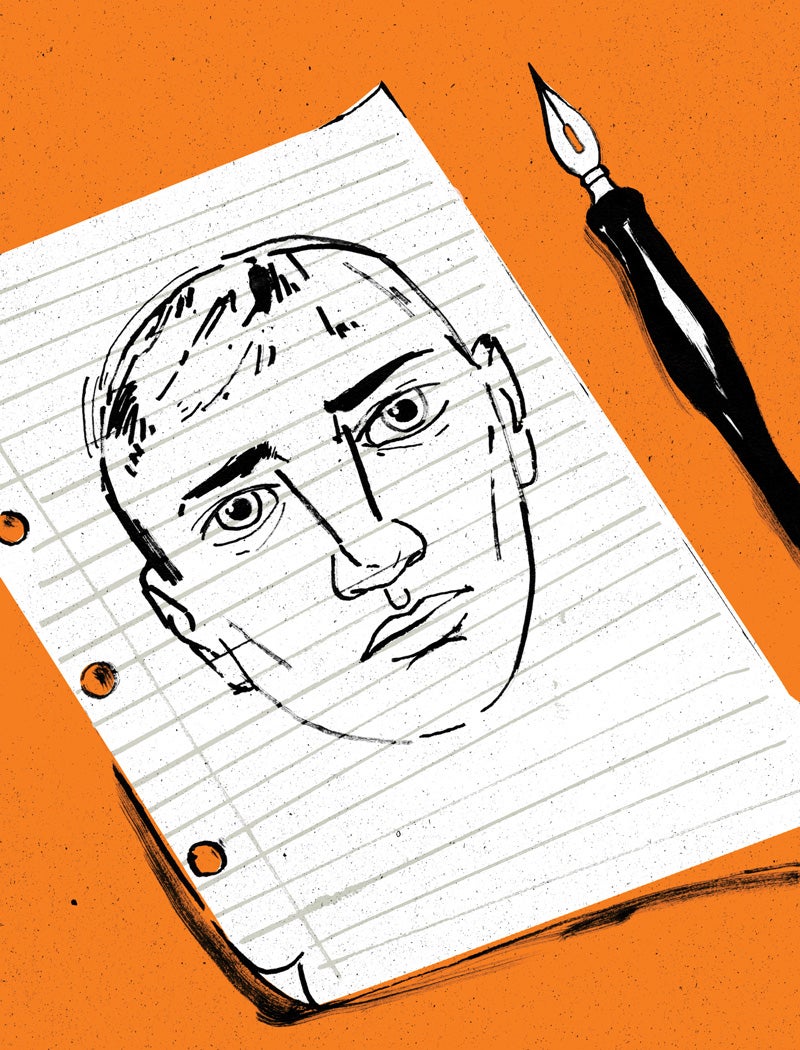
Learning and Healing Together
When USC students share their own writing during the group sessions, the process can lead them toward forgotten memories or reinforce values. During one session, Xiomara Neri Hidalgo, a math major, talks about the time she didn’t have enough money to buy her mother a birthday gift, so she made one. It was a shadow box full of old photos from her mom’s life, decorated with hand-cut paper and flowers.
It’s her first time sharing in the workshop, and the residents offer her some feedback. “That’s a beautiful effort you put into it,” says Doc, a senior Francisco Homes resident who eventually transitioned from the house. Mike chimes in with words of support: “It made my day, really.”
While the USC writing class is intended to give students a new perspective on social issues as they compose class papers, none of the writing done in the course’s nighttime workshops at Francisco Homes is graded or turned in.
But it undoubtedly influences other assignments, the instructors say. Just like the residents, the work the students share is often personal. It’s an opportunity for both groups to be vulnerable. If students are going to write about incarceration or criminal justice, “we believe they should talk to people affected by those issues,” Pack says. “But it’s also lovely to see them write about their cats or their friends or high school experiences, because we don’t necessarily see that work in the course.”
Hearing work written without grades at stake feels special, he adds. The class sticks with students after the semester is over. Bun and former classmate Sabrina Panfil want to continue volunteering with Francisco Homes. Maybe they’ll take some of the guys to the beach, they suggest. Many haven’t been there in decades.
A version of this story first appeared online in USC News.


